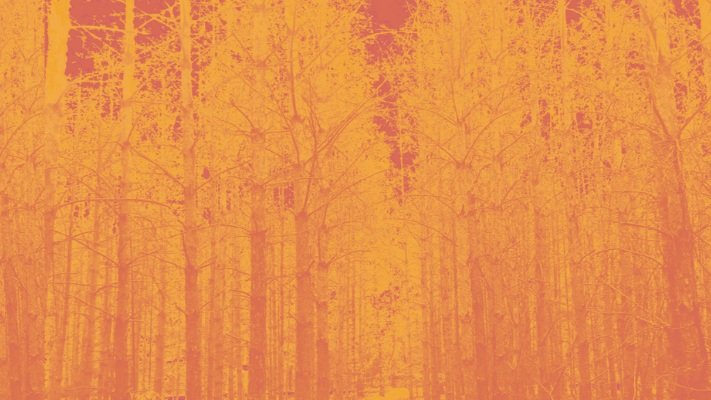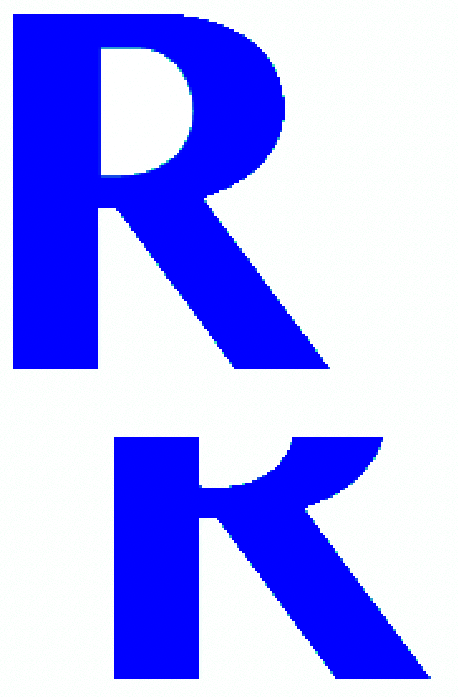
ReRouting’s Weekend Walking Residency
at Künstlerhof Frohnau
14-16. June, 2024
ENG: After a pilot in September 2023, ReRouting’s Weekend Walking Residency will return to Künstlerhof Frohnau this Summer. The residency is an invitation for the selected Berlin-based artists and cultural practitioners to spend a weekend in the forest and walk together as a means to exchange practices and connect as a group.
Running through the Frohnau forest is the route of the old Berlin Wall, traces of which can still be located throughout. What does it mean to walk together on a site of division? How can reflecting on pathways of the past establish grounds for walking with others today? As divisions renew, and open spaces for dialogue decline, how can the walk as a space be best utilized?
DE: Nach einem Pilotprojekt im September 2023 kehrt ReRoutings Wochenend-Wanderresidenz im Sommer 2024 auf den Künstlerhof Frohnau zurück. Die Residenz ist eine Einladung an sieben ausgewählte, in Berlin ansässige Künstler*innen und Kulturpraktiker*innen, ein Wochenende im Wald zu verbringen und gemeinsam zu spazieren, als Mittel zum Austausch von Perspektiven und Erfahrungen. Das Durchwandern des Frohnauer Waldes, entlang der Spuren der ehemaligen Berliner Mauer, regt zur Reflexion über Vergangenheit und Gegenwart an und wirft Fragen zur Nutzung des Gehens als kommunikativen Raum und zur Erfahrung des Anderen auf. Wie können wir diesen Raum bestmöglich nutzen, in einer Zeit, in der Spannungen und Spaltungen zunehmen und offene Räume für Dialoge abzunehmen scheinen?

Walking residents:
hn. lyonga is a Black, Queer, interdisciplinary writer, Poet, and previously the Neighbour in Residence at Gropius Bau. “I live and work in Berlin. I have lived in other places – and they are still present in my body, my writings, and in my life in the diaspora. I have not come or arrived here on my own. I have arrived on the shoulders of others. My work focuses on writing, storytelling, community, ways of being and existing in space, and migrational inquiries pertinent to historically colonized and marginalized communities. Among other things, I am a neighbor, a (livelong) student, co-coordinator and a member of the curatorial board of BARAZANI.berlin - Forum Kolonialismus und Widerstand, and a member of the Field Narratives Collective, working on ideas of rural biographies, transgenerational and cross-continental storytelling.” hn .lyonga’s current co-curation titled Wor(l)ding Dreamers is open at the Galerie im Turm, Berlin.
David JongSung Myung was born in Seoul and studied music theater and classical vocal performance. Afterwards, he began his career as a music therapist, while partaking in various projects and education programs by Berliner Philharmonie. In 2019, Myung joined the Political Voice Institute of National Theatre in Berlin. Myung showcased his first solo works through Transit_NB Residency, Germany and Apal Residency in Berlin, Ring Theater, and was featured in several prominent works that were hosted by Lakehouse and Berlin HAU with his collective Chōri. As an active artist and performer, Myung's current body of work focuses on his identities, the story of which he tells in various formats. In 2023, he composed his own music about his sexual identity and emotions and released his first single <White Chocolate>, and in 2024 he debuted his drag queen identity „Tsu-Nami“.
Juliana M. Streva is a transdisciplinary legal researcher, writer, and filmmaker based in Berlin, originally from Brazil. Her work engages with anticolonial ecologies, legal fictions, and abolitionist world-making. Currently, she is a postdoctoral associate and lecturer at the Institute for Latin American Studies (LAI) at Freie Universität Berlin. Her contributions, spanning visual, sonic, and written forms, embody practices of counter-cartography, deep listening, and speaking nearby. She is the author of the forthcoming book “Anticolonial Cartographies of Femicide” (2025), the monograph “Corpo, Raça, Poder: Extermínio Negro no Brasil” (2018); and the director of the independent films “Mulheres em Movimento” (2020) and “Quilombo, Continuum” (2023).
Andrey Ustinov (*1975, Luga / former USSR) is a Berlin-based performance and media artist who explores themes of #technologies, #perception, #ownership, #resources and #power. The main focus of his work is the cognitive activity of pedestrians and their idiosyncratic acting in public space. Most of his works have a performative approach, where he either appears as performer himself or initiates a technologically mediated situation that forces the invited audience or the casual, often completely unsuspecting passer-by, to participate in a performative experience. This is how his performances, video works, artwalks, web mapping, walk-through sculptures and installations emerge, where sound, light, image and electricity establish themselves as independent artistic actors.
He graduated from the Academy of Media Arts Cologne in 2011, and also studied at the Kunsthochschule Kassel in Germany from 2005 to 2008. He was granted by Kunstfond Art Foundation, Bonn / Germany (2022), Academy of Arts Berlin (2021), IFA Stuttgart (2021), Goethe Institute (2016), shortlisted for The Innovation Art Prize by NCCA Moscow Russia (2007), participated in numerous international exhibitions, biennials, and festivals, among others, Aqua Art Miami / USA (2023), CityLeaks Festival in Cologne / Germany (2019), Media Art Biennial WRO in Wrocław / Poland (2017), Flaherty at Anthology Film Archives NYC / USA (2013), Rendez-vous at MAC Lyon / France (2008), 50th International Short Film Festival Oberhausen / Germany (2004), 1st Prague Biennale / Czech (2003).
Cleo Wächter’s many interests can be distilled down to the question: How do we inscribe and read meaning into the landscape? Focussing on the wide spectrum of urban and ecological environments, she explores these themes through her (visual) art, writing, curating, friendships, and bureaucratic practice.
She is currently a research assistant in the Department of Art, Culture, and History at the Mitte District Office, Urban Culture Division, coordinating art in urban space and art in architecture. She is also part of the artistic direction team of the municipal Gallery Bärenzwinger. Her autonomous work has been presented and published in Stroom Den Haag, the Jan van Eyck Academy in Maastricht, and the Floating University in Berlin.
She holds a BA in Documentary Photography from the Royal Academy of Arts in The Hague (2015) and an MA in Visual and Media Anthropology from the Free University of Berlin (2021).
Sarah Wenzinger is a conceptual artist and educator from Berlin. In her practice of "activist research", she explores artistic strategies of power-critical deconstruction and rethinking of present and future fields of action in the context of (urban) space, climate crisis and technology. She studied theatre directing at the Ernst Busch Academy of Dramatic Arts and has developed long-term participatory and educational art projects for various cultural institutions such as the Neue National Galerie Berlin, Haus der Kulturen der Welt, Bode Museum, Node Forum for digital Arts e.V., Bauhaus Archiv e.V. and Berliner Kulturagenten.
A main interest of her long-term research is the development and testing of artistic strategies, methods, socio-cultural experiments and platforms for critical thinking that can be seized upon and further expanded in different contexts of critical debate. Coming from a queer, intersectional feminist and power-critical perspective, solidarity-based collaboration with socially oppressed perspectives including children, young people and marginalised groups is particularly important to her. Spatial practice, assignments and links between radical education and visual art are key elements of her work.
Claire Waffel & Mareike Drobny
Mareike Drobny is a visual artist who studied sculpture at Alanus Hochschule and Hiroshima City University, completing with a master’s degree. The starting point of her spatial, contextual, and participatory work is often the impulse of movement and the balancing of boundaries. Her works can be seen in public spaces and art and architecture projects. Her work has been awarded by, among others, the Bavarian Ministry of Munich, the Bonn Art Association, the Japanese Study Organization (JASSO), and through first place in art in architecture competitions such as the palliative care unit Munich Großhadern, as well as in temporary art projects Berlin Marzahn.
Claire Waffel is a visual artist who lives and works in Berlin. She studied photography at the London College of Communication, where she was awarded the Sproxton Prize for her work. Currently she is pursuing a practice-based Ph.D. at Bauhaus-Universität in Weimar. Waffel uses video, photography, installation, and storytelling in her artistic works to develop site-specific future scenarios. Her research explores approaches to spatialized phenomena of climate change based on sea level rise in various coastal locations. The aim of her projects is to expand our ecological imaginaries and create counter-narratives through active forms of participation. By combining different approaches into a visual language her artistic research reveals connections between place, coastal communities and climate change. Claire Waffel's works have been exhibited at, among others, the Maxim Gorki Theater (Berlin), the Kunsthaus Dresden, the Kunstraum Kreuzberg / Bethanien (Berlin), the Wilhelm Wagenfeld Haus (Bremen), and the MWW Wroclaw Contemporary Museum (Wrocław). She has been invited to artist residencies by the Goethe-Institut in Prague, Košice, and Jerusalem.

